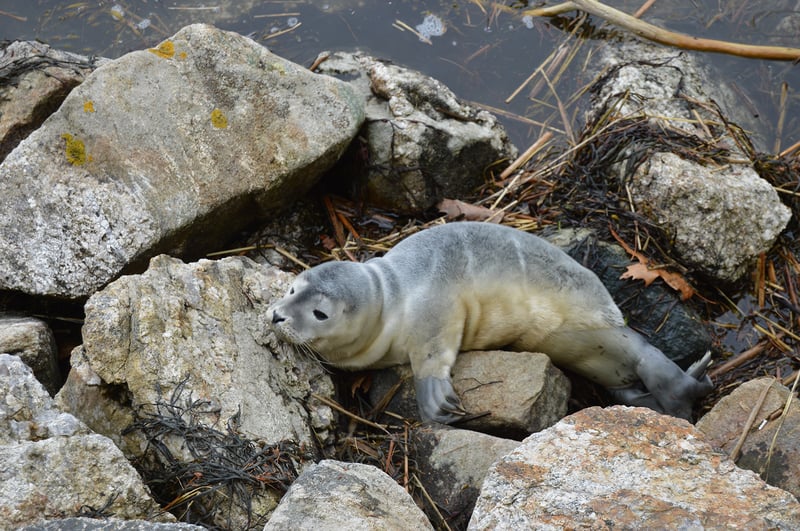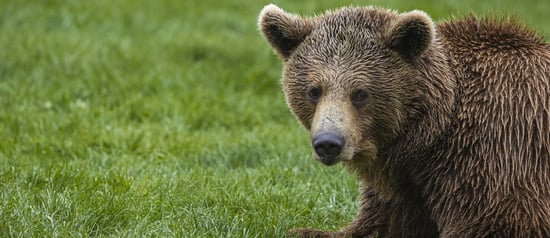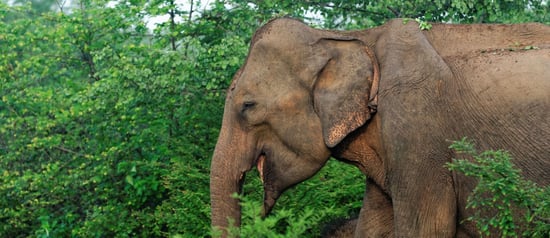
Thai Union joins fight to protect animals from killer "ghost gear"
News
To help protect animals from lost and abandoned fishing gear, one of the world’s largest seafood companies and tuna producers has joined the Global Ghost Gear Initiative (GGGI), which we launched in 2015
Most ghost gear (lost and abandoned fishing gear) is made of plastic, and it’s a huge contributor to plastic pollution in our oceans. Thai Union’s decision to join the GGGI reflects its commitment to combat this issue, and it’s leading by example for hundreds of other global brands who have a duty to address it.
 Loggerhead turtle (Caretta caretta) trapped in an abandoned drifting net in the Mediterranean sea. Photo by Jordi Chias and naturepl.com
Loggerhead turtle (Caretta caretta) trapped in an abandoned drifting net in the Mediterranean sea. Photo by Jordi Chias and naturepl.com
Thai Union is the world’s largest producer of shelf-stable tuna products, and owns seafood brands such as Chicken of the Sea, and King Oscar. Its annual sales exceed 4 billion and it employs more than 49,000 people.
Thai Union’s GGGI membership works in line with its existing sustainability strategy, SeaChange®.
The GGGI, which we started in 2015 and currently lead, is an alliance of organisations and companies working to tackle the ghost gear issue. It includes members from the fishing industry, private sector, academia, governments, and intergovernmental and non-governmental organisations.
Ghost gear’s getting worse
Every year, at least 640,000 tons of ghost gear is lost or abandoned at sea. This makes up around 10% of all marine debris entering our oceans annually.
Sadly, the ghost gear issue is getting worse. More is ending up in our oceans, and it’s killing and entangling more sea animals.
But with such a large, influential company on board, we’re better armed for this tough fight.
Joel Baziuk, our global wildlife campaign manager, said: “Ghost gear represents one of the biggest threats to animals in our oceans, significantly reducing fish stocks and entangling, injuring and killing millions of animals every year.
“Thai Union is keystone actor in the seafood industry, and with huge international influence comes a degree of social and environmental responsibility. We are very much looking forward to working together to drive economically viable, sustainable solutions toward safer, cleaner oceans,” Joel continued.
Stepping up for sea life
Thai Union already primarily uses recyclable packaging for its products, such as steel, aluminium, and cardboard. So, to provide the greatest impact for the issue of marine plastic pollution, it decided to support efforts to reduce ghost gear.
 This blue shark has been entangled in a discarded hook and fishing line. Photo by Terry Goss and Marine Photobank
This blue shark has been entangled in a discarded hook and fishing line. Photo by Terry Goss and Marine Photobank
Thai Union’s global director for sustainable development, Dr. Darian McBain, said: “Research indicates that 70% of floating debris in the open ocean is fishing-related.
“Reducing abandoned, lost and discarded fishing gear is key to ensuring the seas are sustainable now and for future generations. It has obvious impacts on global food security and the seafood supply chain, as well as an impact on the livelihoods of coastal communities.”
Research indicates that 70% of floating debris in the open ocean is fishing-related.
Our work
We're working in Australia and around the world to end the needless suffering of animals by inspiring people to change animals’ lives for the better.
Our wildlife work
Around the world, wild animals are being exploited. They’re hunted down, trapped and farmed in captivity, all to be sold and abused for entertainment, medicine, fashion, pets and products.
 An albatross carcass as it decomposes on Midway Atoll. The plastic shown here was mistaken for food when it was in search for prey at sea. Photo by Steven Siegel and Marine Photobank
An albatross carcass as it decomposes on Midway Atoll. The plastic shown here was mistaken for food when it was in search for prey at sea. Photo by Steven Siegel and Marine Photobank
